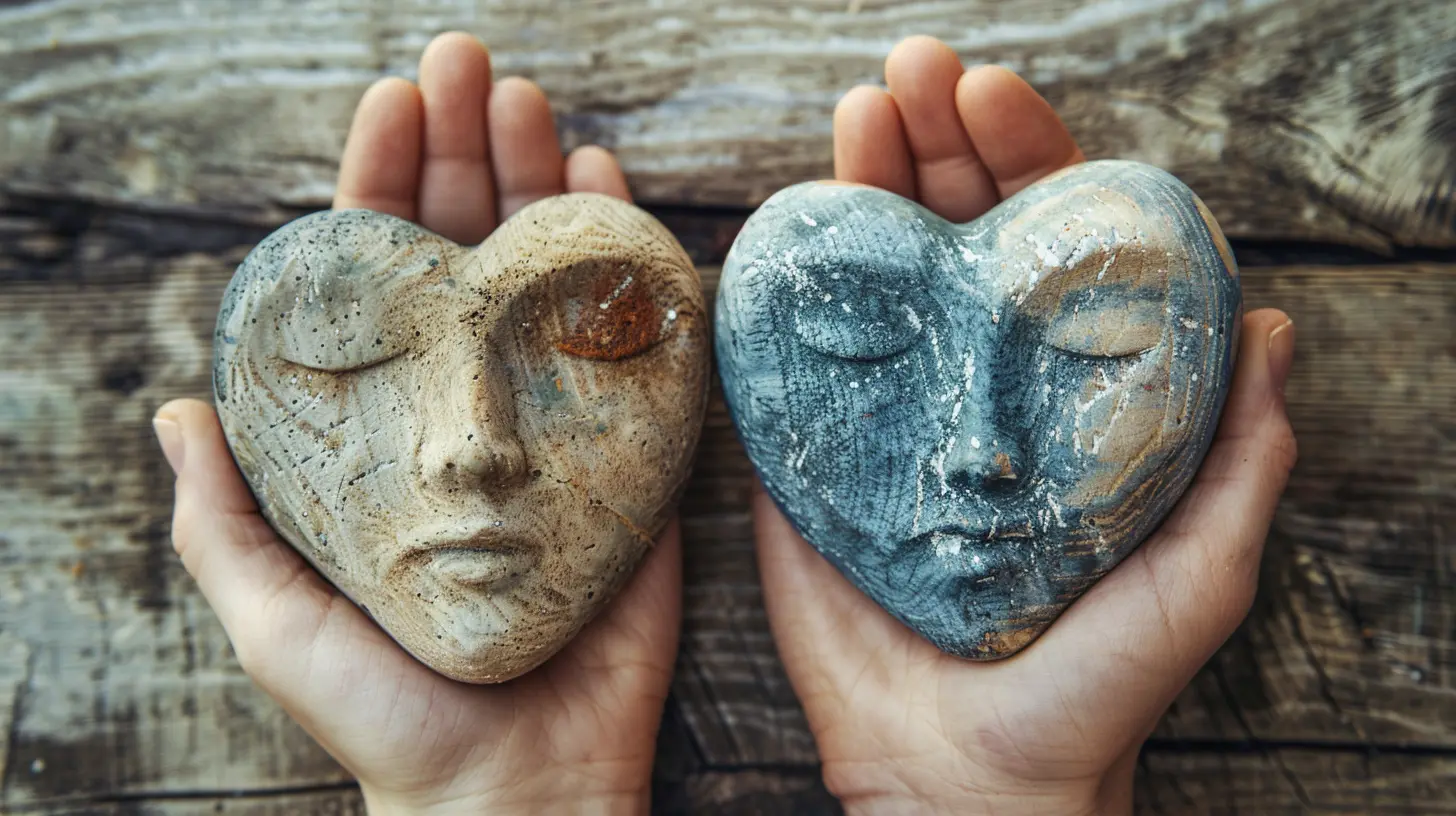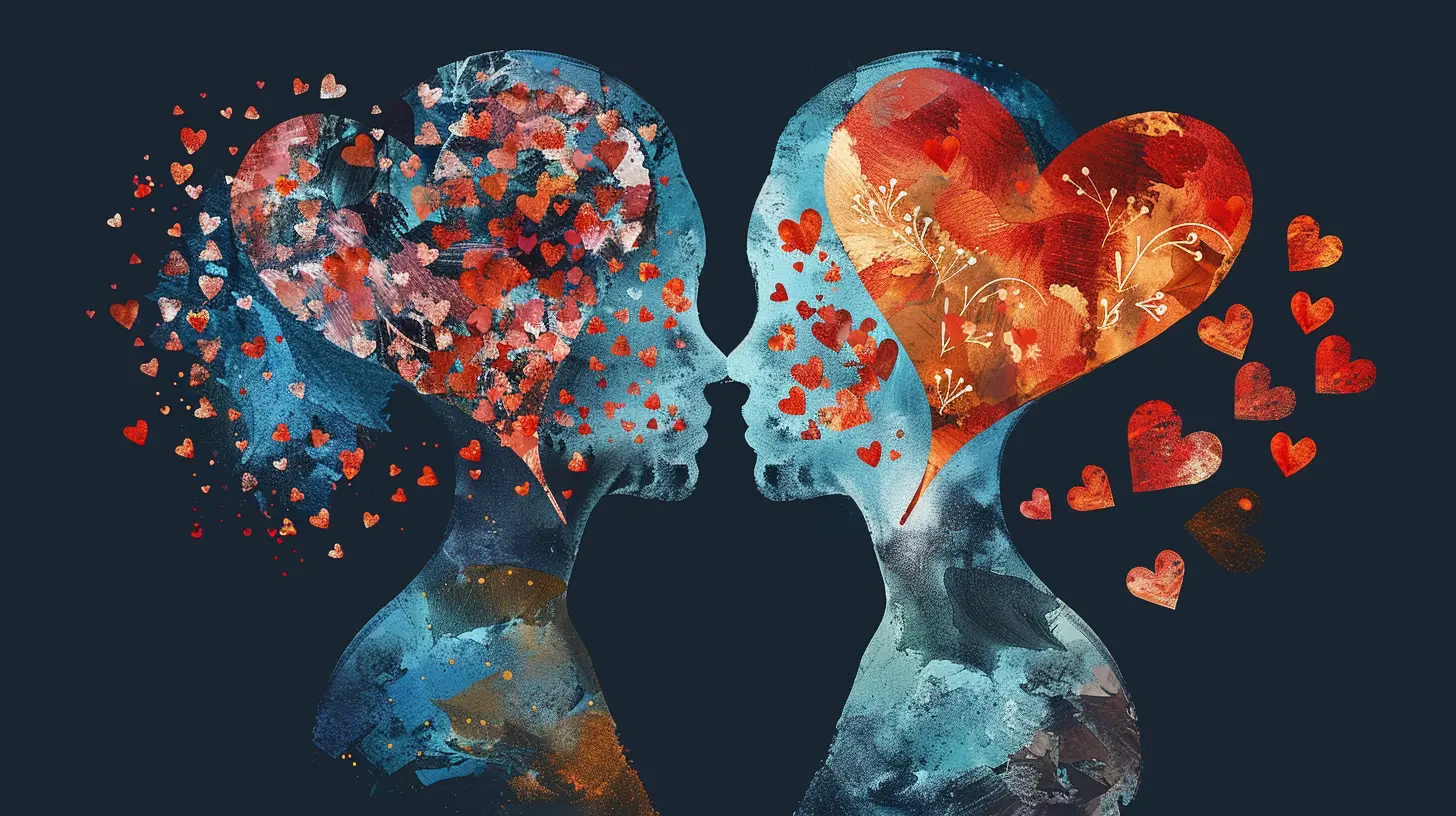Unlocking the Power of Empathy: How to Deepen Emotional Connections
25 September 2025
Let’s be honest—life is complicated, and relationships? Even more so. Whether it’s your partner, your parents, your coworkers, or even the stranger who just cut you off in traffic—human beings are emotionally intricate. But if there’s one secret ingredient that has the power to transform how we connect with others, it’s empathy.
In this fast-paced, often digital-first world, true emotional connection is becoming more rare. Empathy isn’t just about saying “I feel you”—it’s about actually putting yourself in someone else’s shoes (and not just trying them on for size). You don't need a psychology degree to start practicing empathy. It starts with being human—and being willing to connect.
Let’s dive deep into how empathy works, why it matters, and how you can harness its power to build stronger, more meaningful relationships.
What Exactly Is Empathy?
At its core, empathy is the ability to understand and share the feelings of another person. But it's not just one big emotional blob—there are actually three types of empathy:1. Cognitive Empathy – This is the “I get what you’re feeling” response. You mentally grasp someone else’s emotions without necessarily feeling them yourself.
2. Emotional Empathy – Here, you actually feel what the other person is feeling. If your friend is anxious, you might feel uneasy too.
3. Compassionate Empathy – This is empathy in action. You not only understand and feel what they’re going through—you want to help.
Empathy isn’t about being soft or overly emotional. It’s about emotional intelligence. It's your brain and heart working together to say, “I’m here with you.”
Why Empathy Matters More Than Ever
Let’s face it—social media and tech have made us more connected than ever, but at the same time, more emotionally distant. We scroll through headlines, react to posts, and swipe past stories—but how often do we truly stop to understand what someone else is feeling?Empathy bridges that emotional gap. It’s what turns surface-level interactions into deep, meaningful bonds. It’s the foundation of healthy relationships, effective communication, and genuine human connection.
Think about your closest relationships. What makes them work? Chances are, empathy plays a huge role. When you feel heard, seen, and understood—it’s magic.
The Science Behind Empathy
Now, let's geek out for a second. There’s actual neuroscience behind empathy.Ever heard of “mirror neurons”? These are the tiny cells in your brain that fire up when you observe someone else’s emotional state. They're why you cringe when you see someone trip or tear up during a sad movie.
Your brain is wired for empathy. The challenge? Like any muscle, it needs exercise. The more you practice empathy, the stronger it gets.
Roadblocks to Being Empathetic
Okay, so if empathy is so natural, why don’t we all ace it daily?Here’s the truth: life gets in the way. Stress, distractions, past trauma, and even cultural conditioning can dull our empathetic instincts.
Common empathy blockers include:
- Judging others too quickly
- Focusing on your own problems
- Being emotionally drained
- Making assumptions
- Avoiding difficult emotions
Sometimes, we even mistake sympathy for empathy. Sympathy says, “I feel sorry for you.” Empathy says, “I’m with you in this.” Huge difference, right?
How to Cultivate Real Empathy
So how can we flex the empathy muscle and deepen our emotional connections?It doesn’t require a complete personality overhaul. Just some shifts in how you observe, listen, and respond.
1. Start with Active Listening
Listening isn’t just about waiting your turn to talk. It’s about giving your full attention. Put the phone down. Make eye contact. Nod. Say things like “That sounds really tough” or “I can see why you'd feel that way.”Active listening makes the other person feel validated—and that’s golden.
2. Ask Open-Ended Questions
Instead of yes/no questions, dig a little deeper. Try:- “How did that make you feel?”
- “What’s been on your mind lately?”
- “What do you need right now?”
These questions invite someone to open up. And when they do, don’t rush to fix or compare. Just be with them in the moment.
3. Reflect, Don’t React
Reacting is easy. Listening and reflecting? That takes intention. Before you respond, pause and really consider what the other person is expressing.Try saying:
- “It sounds like you’re really overwhelmed right now.”
- “I can tell that meant a lot to you.”
Mirroring someone’s feelings builds emotional trust.
4. Practice Curiosity Instead of Judgment
We all judge—it’s human nature. But empathy asks us to get curious instead.Rather than thinking, “Why would they do that?” ask, “What might have led them to feel this way?”
Curiosity cracks open the door to understanding. Judgment slams it shut.
5. Be Vulnerable Yourself
Empathy is a two-way street. If you want people to open up, you’ve gotta be willing to do the same. Share your struggles, even if they’re messy.When you say, “I’ve been there too,” connection happens.
Empathy in Everyday Life
You don't need a tear-jerking moment to be empathetic. It’s the little things that count.Empathy at Home
With your partner, it could mean noticing their body language after a tough day and offering a hug instead of advice. With kids, it might mean validating their big feelings instead of brushing them off.A simple, “I see you’re really upset. Want to talk about it?” goes a long way.
Empathy at Work
Workplaces can be emotionally tricky. Deadlines. Miscommunication. Office drama.Being empathetic at work could mean checking in on a burned-out team member or recognizing the pressure behind someone’s curt email.
Empathy doesn’t make you less professional—it makes you a better leader, teammate, and communicator.
Empathy with Strangers
Ever notice how kindness from a stranger can totally shift your day?Whether you’re holding a door, letting someone merge in traffic, or smiling at a cashier, those small moments matter. You never know what someone else is going through—but your empathy might be the thing that lifts them up.
The Ripple Effect of Empathy
Here’s the beautiful thing about empathy—it spreads.When someone feels truly seen and heard, they’re more likely to pay it forward. Relationships get warmer. Teams work better. Conflicts resolve faster. The world becomes just a little softer.
And don’t forget: empathy doesn’t just help others. It helps you too. Research shows empathetic people are happier, have better mental health, and enjoy more fulfilling relationships.
It’s a win-win.
Can You Have Too Much Empathy?
Great question. The short answer? Kind of.Ever feel burnt out from caring too much? That’s called empathy fatigue, and it’s real—especially for caregivers, health workers, and highly sensitive people.
It’s okay to set boundaries. It’s okay to take breaks. Practicing empathy doesn’t mean draining yourself dry. It means showing up with presence and compassion—without losing yourself in the process.
Empathy Is a Skill, Not a Trait
Here's the best part: empathy isn’t a fixed trait. It’s a skill—and that means you can build it.Think of it like going to the gym. You don’t start with lifting 200 pounds. You begin with small reps. Pay attention to your surroundings. Ask more questions. Listen more deeply. Challenge your assumptions.
Bit by bit, your empathy muscle grows. And so do your emotional connections.
Final Thoughts: Empathy Changes Everything
In a world that often moves too fast, empathy slows us down enough to truly see each other. It’s the heartbeat of authentic relationships, the glue that holds communities together, and the bridge between different perspectives.You don’t need to be perfect. You just need to care enough to try.
So next time someone shares something with you, pause. Listen. Feel. Connect. Because in that moment of empathy, you’re not just hearing them—you’re healing them (and maybe even yourself).
all images in this post were generated using AI tools
Category:
EmpathyAuthor:

Alexandra Butler
Discussion
rate this article
1 comments
Liora McKittrick
Empathy isn't just a skill—it's a necessity. Dismissing it as optional weakens our connections. Embrace vulnerability and challenge yourself to truly understand others; that's where real emotional growth begins.
October 3, 2025 at 4:23 AM

Alexandra Butler
Absolutely! Empathy is fundamental to building strong connections and fostering emotional growth. Embracing vulnerability allows us to understand others at a deeper level. Thank you for highlighting its importance!


